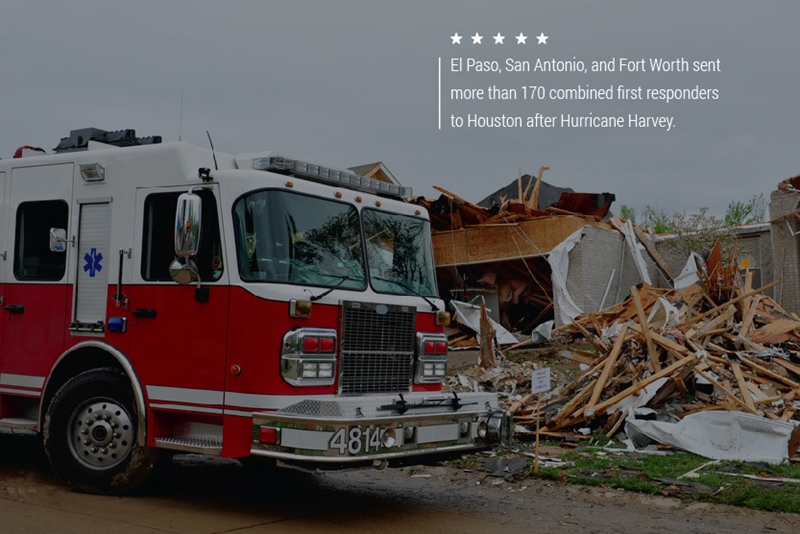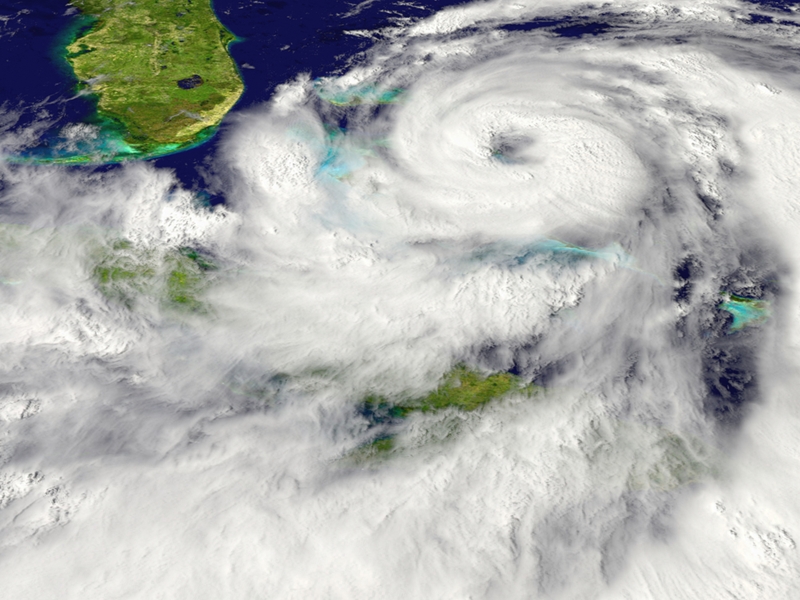This year's hurricane season was one of the most devastating in recent history. Most notably, Hurricane Harvey was the first major hurricane to make landfall in the U.S. in 12 years. The storm hovered over southeast Texas and unleashed an unprecedented amount of rainfall – anywhere from 40-61 inches, according to The Weather Channel.
Following Harvey was Hurricane Irma, which also reached incredible extremes. The storm is one of five in history with maximum sustained winds at or exceeding 185 miles per hour. It maintained these speeds for 37 hours, which is the longest length of time on record. In terms of damage, Irma ravaged the islands of Barbuda and Antigua, leaving the former island completely evacuated and damaging 95 percent of its existing structures, according to USA Today. The state of Florida was also heavily damaged by the storm, leaving thousands without housing.
First responders and members of the National Guard have been essential to mitigating the damage done by these and other major storms as much as possible. While it's impossible to tell each of their individual stories, we should recognize their courage and efficiency as best we can. Below are a few examples of how these emergency personnel have reacted to this year's hurricane season:
Coordination – and help from citizens – in Texas
If Hurricane Harvey can be considered an extraordinary storm, so were its recovery efforts. The city of Houston was hit hard, but first responders gathered from all over the state to help. According to The Texas Tribune, they were able to do so thanks to a system created by the state legislature in 2007. The Texas Statewide Mutual Aid System allows agencies to request assistance without creating a contract to settle liability and cost beforehand. Instead, the requesting agency simply reimburses those that come to assist it with federal aid money. Thanks to this system, San Antonio, El Paso and Fort Worth were able to easily and quickly send more than 30, 40 and 100 officers, respectively.

Overall, the city's rescue efforts were well-coordinated, according to Michael Walter, public information officer for the Office of Emergency Management in Houston.
"What I can tell you is that I have never seen so much coordination," he told the national news organization. "I have never seen such a request – when a request goes out, I've never seen so many agencies so willing to jump in and help."
The city's residents, in turn, helped their rescuers, and thousands came together to provide hot meals. One woman, Kristel Meadows, even did laundry for a team of firefighters and organized a series of traveling food drives, according to Time Magazine.
Out-of-state response to Irma and Maria
"FEMA sent 34,000 responders to respond to Hurricane Irma."
Response to Hurricane Irma was swift and efficient, according to Federal Emergency Management Agency Director Brock Long. In a separate Time Magazine article, he credited the agency's success to the veteran emergency managers who had experienced past disasters. He also added that FEMA sent 34,000 responders to assist with Irma-related damage. Additionally, the Environmental Protection Agency and the Department of Health and Human Services coordinated to create pop-up hospitals that both treated patients and tested floodwaters for contamination.
A great number of resources for Puerto Rico also came from outside of the island. Some of the initial response came from individual states. For instance, New York City alone sent 140 first responders, according to the New York Times. Additionally, National Guard members from several states converged to assist with relief efforts, including Pennsylvania, Kentucky, Texas and Maryland.
Though this hurricane season has been one of the most destructive on record, the dedicated work of the nation's first responders helped ensure the people most at risk received the help they needed.

